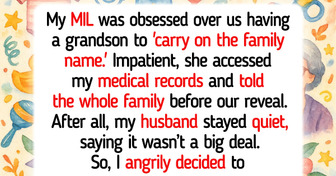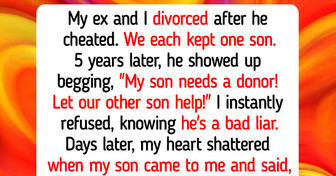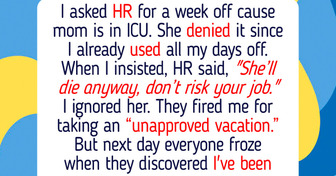My In-Laws Forced Me to Leave My Vacation Early—They Crossed Every Line


Science says that people are born uniquely when it comes to their ability to forgive. There are differing brain structures for human beings who quickly move on and those who find it difficult to let go. Moreover, forgiving and forgetting are challenging for some of us, and we can say why.
Bright Side always wants to promote mental health and self-love. That’s why we created a list about putting yourself first in times of emotional battles with your significant others.
While it is necessary to get on your feet and on with forgiving, it is inevitable for us to overthink what just happened. Overthinking leads to stressful moments and can lead to us having high blood pressure.
Our body produces more hormones whenever we feel stressed. That’s why our hearts beat faster, while narrowing our blood vessels in the process.
Sometimes, it’s better to set your boundaries first before fully healing through forgiveness. This is highly advisable for people who have undergone extreme experiences that may have put their lives and mental health at risk.
Forcibly making yourself forgive and forget a hurtful happening may let you think that what you’re feeling deep inside is wrong. It is more invalidating and uncomfortable when the experience is traumatic and impossible to be let go of quickly.
Often frowned upon, being angry when dealing with forgiving someone is actually okay. In fact, it gives you control over the situation. But too much anger can cause minimal contact with friends and acquaintances over time.
Rumination is a habit of replaying our past mistakes in our heads. It is an unhealthy coping behavior we usually do when we blame ourselves for a misunderstanding. In this case, overthinking whether to forgive a person or not can make us dwell on our misgivings too much, increasing the chances of depression and anxiety.
All these are true, but your body will eventually give up when you hold onto the past much longer. While your emotional health heals as you forgive and forget past mistakes, your physical and mental well-being do, too.
Which of these moments have you experienced while mending a broken heart? Which of these do you strongly recommend?











